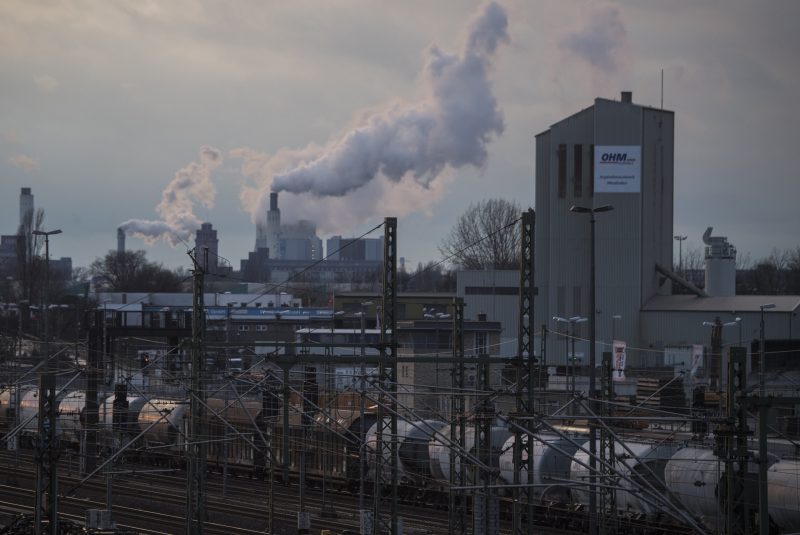Builders bring February rebound for German industrial output
Industrial production was in up last month in Germany, providing a bright spot amid gloomy economic indicators in Europe’s largest economy (John MACDOUGALL)
Frankfurt am Main (AFP) – German industrial production rebounded in February to beat analysts’ expectations, official data showed Friday, but the construction-led boost offered little relief for observers of Europe’s slowing economic powerhouse.
Industrial output added 0.7 percent month-on-month, federal statistics authority Destatis said in data adjusted for seasonal and calendar effects — beating a forecast of 0.5 percent from analysts surveyed by Factset.
The statisticians also corrected January’s figures, saying production was flat rather than booking a 0.8 percent fall against December as initially reported.
Nevertheless, “given weak development in orders and the troubled business climate, we can continue to expect muted development in industry” in the months ahead, the economy ministry in Berlin said in a statement.
Thursday brought a shock industrial orders reading that showed new contracts fell 4.2 percent month-on-month in February, massively disappointing forecasts.
Looking in more detail at Friday’s output measure, almost all of the production increase was down to construction firms, which added 6.8 percent amid unusually mild weather, while industry fell 0.2 percent.
Among manufacturers, both producer and consumer goods makers reported falling output, while capital goods inched up 0.6 percent.
“Manufacturers are still struggling,” commented Capital Economics analyst Jack Allen.
With slow growth worldwide, “Germany, which is highly sensitive to developments in the global economy, is unlikely to get much support from foreign demand” over the remainder of 2019, he added.
“Brexit woes and the global slowdown have a stranglehold over German industry,” agreed ING economist Carsten Brzeski.
But he noted that observers are puzzled by manufacturers’ failure to rebound from one-off factors that cropped up in 2018 and have since ebbed, like intensive new emissions tests for cars and a drought throttling inland shipping along the Rhine river.
“The slowdown has been too severe to exclusively be justified by Brexit, China and trade,” Brzeski said.
“Either there is more and structural weaknesses finally leave their mark on industry or a rebound is still in the offing.”
Germany’s best-known economic think tanks have taken a gloomy view, lowering Thursday their growth forecast for 2019 to just 0.8 percent from a 1.9 percent prediction last autumn.
Disclaimer: Validity of the above story is for 7 Days from original date of publishing. Source: AFP.


